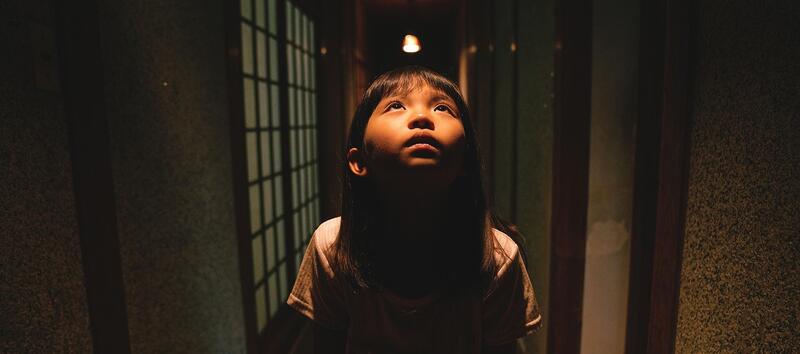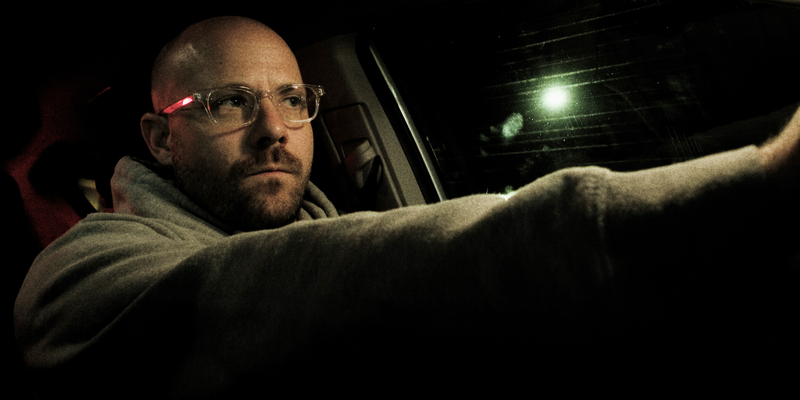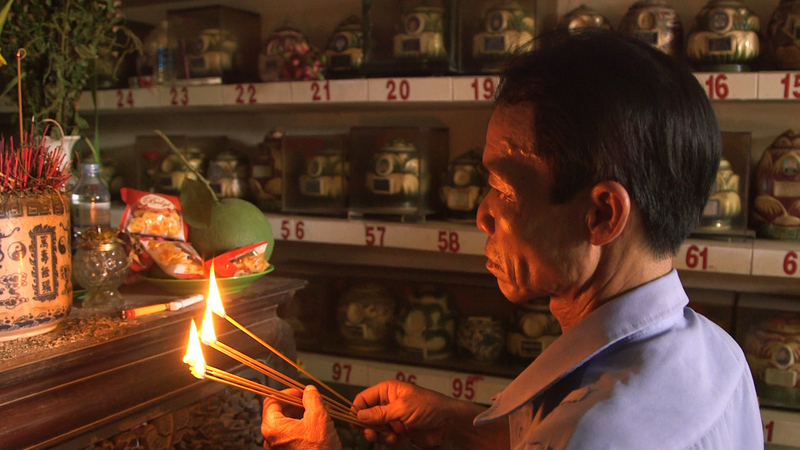
The Sinister Side of Pursuing Happiness
MOVIE REVIEW
Best Wishes to All (Mina ni sachi are)
–
Genre: Horror, Mystery
Year Released: 2024
Runtime: 1h 29m
Director(s): Yûta Shimotsu
Writer(s): Rumi Kakuta
Cast: Kotone Furukawa, Kôya Matsudai
Language: Japanese with English subtitles
Where to Watch: Streaming on Shudder June 13, 2025, shown at the 2025 Overlook Film Festival
RAVING REVIEW: BEST WISHES TO ALL sneaks up on you. It starts with a familiar tone that makes you almost forget you’re watching a horror movie—until it flips expectations in the most unsettling ways. What begins as a slow, quiet visit to the countryside soon morphs into something much darker, asking serious questions about the cost of happiness and who ends up paying for it. Yûta Shimotsu doesn’t just want to creep you out—he wants to make you uncomfortable in the deepest ways possible.
The setup is simple: a young nursing student visits her grandparents in the countryside before final exams. It’s the setup you’d expect to lead to lessons about family history or maybe a few ghost stories. But this is a different kind of narrative. The strange behavior starts small—odd looks, peculiar laughter, a creeping sense that something isn’t quite right in the house. And once it begins to snowball, there’s no turning back.
Its use of silence makes BEST WISHES TO ALL so effective. Shimotsu knows how to let a moment sit. A quiet hallway. A long stare. Even a mundane chore like slicing meat becomes threatening with the right camera angle and sound design. The house isn’t haunted traditionally, but every room pulses with something just beneath the surface. The restrained editing lets scenes play out without jumping for quick scares. It’s a slow build—methodical and confident.
That slow burn pays off when the real horror kicks in, and it’s not what you expect. This isn’t about monsters hiding in closets or ghosts appearing in mirrors. The real terror here lies in what people are willing to accept—and even defend—when their comfort depends on it. The story introduces a worldview in this community that’s as disturbing as any supernatural element.
Kotone Furukawa anchors the film with a performance that shifts from hopeful to harrowed. She plays the lead with a subtle sense of unease, never overacting but always communicating that something feels off. As the story unfolds, her gradual realization of what’s happening gives the film its emotional pull. She’s not just confronting strange relatives—she’s confronting an entire belief system. Her values clash with what she’s told, which is “just the way things are,” that internal conflict is where the story gets its bite.
The performances around her, especially from the grandparents, are eerie without being over-the-top. Their sweetness feels performative in all the wrong ways, and their cheerfulness takes on a disturbing quality as the truth emerges. It’s in the contrast that the horror works best—sunlit rooms, friendly faces, and horrifying beliefs lurking just behind the smiles.
There’s a strong undercurrent of social commentary in BEST WISHES TO ALL. While never heavy-handed, the story nods to larger concerns about aging populations, societal apathy, and the generational philosophy that sees youth as currency to be spent rather than nurtured.
It’s hard not to admire the craft on display. Shimotsu’s directorial style is steady and confident. The film has unusual blocking and deliberate sound design that never tries to overwhelm you but pulls you into its quiet dread. There’s confidence in the restraint, which lets viewers work for their discomfort rather than handing it over in cheap thrills.
Perhaps what’s most refreshing is that BEST WISHES TO ALL doesn’t pretend to have easy answers. It ends in a way that forces reflection rather than relief. You’re left thinking about the implications of what you just witnessed and questioning where your comfort comes from—and at what cost.
BEST WISHES TO ALL stands apart not because it reinvents the genre but because it quietly challenges its audience. It doesn’t beg for attention. It sits with you, stares you down, and lets its ideas do the haunting. Shimotsu’s feature isn’t flawless, but it leaves an impression—and chills in its wake.
Please visit https://linktr.ee/overlyhonestr for more reviews.
You can follow me on Letterboxd, Instagram, Twitter, and YouTube. My social media accounts can also be found on most platforms by searching Overly Honest Reviews.
I’m always happy to hear from my readers; please say hi or send me any questions about movies.
[photo courtesy of Shudder, Booster Project, Kadokawa, Movie Walker, Peek a Boo Films]
DISCLAIMER:
At Overly Honest Movie Reviews, we value honesty and transparency. Occasionally, we receive free items for review, including DVDs, Blu-rays, CDs, Vinyl, Books, etc. We assure you that these arrangements do not influence our reviews, as we are committed to providing unbiased and sincere evaluations. We aim to help you make informed entertainment choices regardless of our relationship with distributors or producers.
Amazon Affiliate Links:
Additionally, this site contains Amazon affiliate links. If you purchase through these links, we may receive a commission. This affiliate arrangement does not affect our commitment to honest reviews and helps support our site. We appreciate your trust and support in navigating these links.



Average Rating